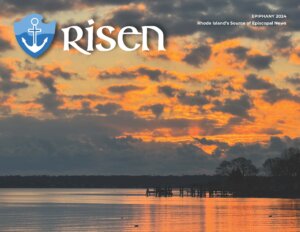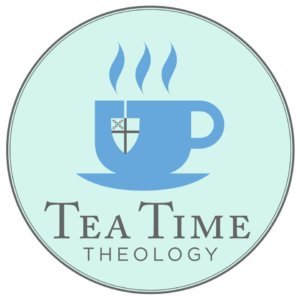Sacred Stories
Sacred Stories, a stained glass coloring book is now available on Amazon! Proceeds to benefit Episcopal Charities. https://www.amazon.com/dp/1960505866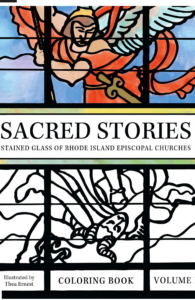
Convention 2023
Diocesan Convention will take place on October 27 and 28, 2023. All of the information you will need in advance can be found on the Convention Page of our website. The business meeting of Convention will be available for viewing on that page as well.
RISEN! Easter 2023
The latest edition of RISEN is available here: 2023 Easter – RISEN. Happy Easter!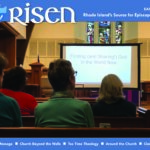
A New Chapter for Hallworth House
Hallworth House Is Home to New Medical Respite Care Program
On Monday, Governor Dan McKee and the Rhode Island Executive Office of Health & Human Services announced that Hallworth House, a former nursing home on the diocese’s campus on the East Side of Providence, is the new home of a pilot program that cares for people who are experiencing housing insecurity or homelessness and have acute injuries and illnesses. The initiative, called medical respite care, is managed by Westbay Community Action.
“For more than a year, we worked with the state to use Hallworth House for housing COVID-positive residents of the shelter system who needed a place for quarantine and recovery. This new medical respite initiative gives us another way to follow Jesus’ commandment to care for the most vulnerable people in our communities. We are very glad for this opportunity to support our neighbors and deepen our relationship with the state and with Westbay,” Bishop Nicholas Knisely said.
“People experiencing homelessness with acute medical and behavioral health conditions have unique needs that often cannot and should not be managed while living on the street or in shelters that are not equipped to facilitate recovery,” Governor Dan McKee said in a press release. “I am thankful to our team and the community partners who stepped up to help us continue building a continuum of housing supports for all.”
Under the terms of the pilot program, Hallworth House will be home to up to 20 beds available to people who are being released from hospital care and would otherwise return to a housing insecure situation. An additional 10 beds can be added as dictated by demand and funding. The medical respite care program is made possible by Rhode Island’s Medicaid waiver extension, which allows the state to test initiatives that can improve the Medicaid system.
Since 2020, Hallworth House has also housed administrative offices and provided a production kitchen and storage space for Beautiful Day, a not-for-profit organization that helps refugees adjust to life in the United States by offering paid, on-the-job training in an initiative that produces granola and coffee.
– Canticle Communications
Marking History at Trinity Church, Newport
Bishop Knisely and the Rev. Canon Timothy J. Watt, rector of Trinity Church, Newport, led a service of word and song to mark the dedication of a slave history medallion at the church on Sunday, October 30 at 4 p. m.
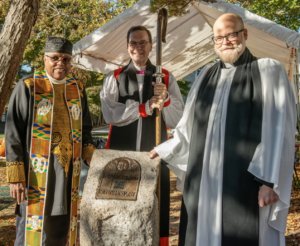 The medallion was installed by the Rhode Island Slave History Medallion (RISHM) project, a statewide effort to promote public awareness of the history of slavery and the slave trade across the state. Trinity is now one of a growing number of sites at which a QR-coded bronze plaque, called a medallion, opens a web page on visitors’ mobile phones explaining the site’s connection to the history of slavery in Rhode Island.
The medallion was installed by the Rhode Island Slave History Medallion (RISHM) project, a statewide effort to promote public awareness of the history of slavery and the slave trade across the state. Trinity is now one of a growing number of sites at which a QR-coded bronze plaque, called a medallion, opens a web page on visitors’ mobile phones explaining the site’s connection to the history of slavery in Rhode Island.
“It’s hard to imagine any industry, any institution, in this state that was here in the early 19th century that in some way was not participating in and receiving monies that were connected with the trade of human beings, both in the United States and in the Caribbean, from insurance industries to loom and textile manufacturers to the church” Bishop Knisely said. “We are all connected to that story. And it is a hard story to hear.
“Sometimes it is hard to face the truth,” he said, “but there is no other way to be free.”
Canon Watt said since Trinity’s vestry approved the placement of the medallion, he had heard from critics who said it went too far and those who said it did not go far enough in acknowledging the church’s participation in the slave trade. But he said it was “a simple historical fact” that Trinity parishioners and several of its early rectors enslaved people or were involved in the trans-Atlantic trade in human beings.
In October 1729, George Berkeley, the eminent philosopher, preached from Trinity’s pulpit in support of the “Yorke-Talbot Opinion,” a joint opinion of the British attorney and solicitor generals that enslaved persons did not become free by virtue of their baptism.
“In other words, ‘Relax, masters, it’s okay to let them be baptized. They’ll still be your slaves,’” Watt said.
Berkeley, who was then a priest and later a bishop in the Church of Ireland, enslaved several people at his nearby farm in Middletown during his few years in Rhode Island. The opinion he defended helped legitimized slavery in Great Britain for decades.
As a Christian, Watt said, he prays that Jesus will correct him when he is in error and bring him to amendment of life. “And so, we place this marker to remember when we’re in error and for the Holy Spirit to work in us for amendment of life,” he said.
Charles Roberts, RIHSM’s director, told those gathered for the dedication that his organization places medallions at historic sites to make the history of the state’s involvement in the transatlantic slave trade more accessible to the general public. On occasion, he said, people discover they have a personal connection to this history, as had happened to him.
As a child growing up in Newport, Roberts played in the nearby God’s Little Acre colonial graveyard and was taken with the two-shouldered gravestones adorned with an angel’s face that made him feel as though he were playing in “a sea of angels.” There are similar gravestones in Trinity’s own cemetery, he said.
As an adult, he learned that a stone in this style marked the grave of Cuffe Gibbs, who had been enslaved by George Gibbs and later by his son, both of whom were members of Trinity Church. The stone had been carved and signed by Gibbs’ brother, Pompe Stevens, who was enslaved by a local artisan. In signing this one example of his work, Stevens caused later historians to look upon the contributions of black artisans to colonial era culture with fresh eyes, and also gave evidence that the ties of a Black family had endured despite its members enslavement in different households. Stevens’ design is the inspiration for the design of the medallions place by RIHSM.
“This is living history,” Roberts said. “It doesn’t go away. We are in it. we are part of it.”
The service concluded with a vibrant choral performance by RPM (Reaching People Through Music) Voices of Rhode Island.
Raise Together
Our Episcopal Conference Center is in the midst of a capital campaign to fund much needed repairs to the barn, and other improvements. There is information on the ECC website: eccri.org. Please watch this video, and consider how you can help. Thank you.
Raise Together: ECC Capital Campaign 2021 from Breaking Branches Pictures on Vimeo.
Convention Eucharist
We are live-streaming the Convention Eucharist here:
Listen In
Province I Coordinator
Province I of The Episcopal Church, comprised of the Episcopal dioceses in New England –Vermont, New Hampshire, Maine, Massachusetts, Western Massachusetts, Rhode Island and Connecticut – is seeking a half-time Province I Coordinator. The primary role of the Coordinator is to assist Episcopalians in the dioceses of New England to network with one another around shared interests and activities in service to the mission of God. As such, the Coordinator serves as a principal resource for groups and individuals who seek to partner with one another around common goals and activities. The Coordinator is not called to initiate activities and programs, but rather to respond to emerging needs and activities arising from the various networks across the Episcopal Church in New England.

